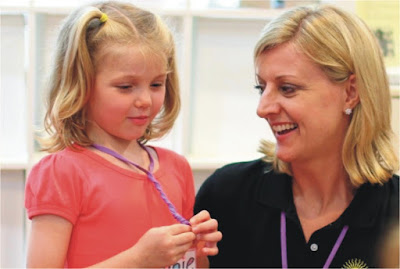By Vikas
Malkani
Founder of SoulKids®
31st October 2016
Contrary
to what some believe, self-confidence doesn’t develop simply by telling kids
they're wonderful, special, and unique. Simple words will not do it, nor will
giving every child a trophy at the end of every contest.
The
reality is that your child will face competition in life and must learn how to
manage it. Regardless of the result, when children compete, they can see that
their own preparation and hard work makes a difference. Getting a prize
contributes to self-confidence only when the child knows they have earned it.
A
positive self-confidence is one of the greatest gifts you can give your child. The
self-confidence a child develops is the result of numerous experiences that
help a child feel accepted, loved, respected, capable and effective. And it is always built over time.

SoulKids® teaches that children with high self-esteem feel loved
and competent and develop into happy, productive people. They
tend to feel
valued and accepted, feel proud of a job well done, think good things about
themselves and feel prepared for everyday challenges.
Conversely,
children with low self-esteem often feel self-critical and are hard on
themselves, feel insecure, or not as good as other kids, focus on the times
they fail rather than the times they succeed, lack confidence to step out of
their comfort zone, and constantly doubt their ability to do well at things.
At SoulKids® we believe that self-confidence is
important because
when children feel good about themselves, it sets them up for success — in
everything from school to friendships. Positive self-confidence helps children
try new challenges, cope with mistakes, and try again. In contrast, children
with low self-confidence feel unsure of themselves, think others won't accept
them, and may allow themselves to be treated poorly and have a hard time
standing up for themselves.
Here
are 5 SoulKids® tips to help your child develop self-confidence :
1)
Help your child learn to do things - At
every age, there are new things for kids to learn. When a child does something
new, it gets them out of their zone of comfort and into their zone of discovery
and growth; it makes them grow. Doing new things is absolutely essential for the
constant development of a child and also great for building their
self-confidence.
When teaching kids how to do
things, show and help them at first. Then let them do what they can, even if
they make mistakes. Be sure your child has lots of opportunities to learn, try,
and feel proud. Don't make new challenges too easy — or too hard.
2)
Praise your child, but do it wisely - It's good to praise children
and your praise is a way to show that you love them and are proud of them too.
But research shows that some ways of praising kids can actually backfire so
avoid over-praising. Praise that doesn't feel earned is not beneficial and in
fact can have the reverse effect. Kids are masters at detecting insincere
praise or baseless compliments.
Praise your child often, but be
specific in your compliments so your words sound and feel true. Telling a child
he played a great game when he knows he didn't feels hollow and fake. So it's
better to say, "I know that wasn't your best performance, but we all have
off days. I'm proud of you for not giving up. Tomorrow, you'll be back on your
top game."
At SoulKids® we believe that
it’s better to praise the efforts they make rather than just the results they
achieve. This kind of praise encourages children to put effort into things,
work toward goals, and try. When kids do that, they are more likely to succeed.
3)
Ban negative criticism - The messages kids hear about
themselves from others easily translate into how they feel about themselves.
Harsh words such as ‘You're so lazy’ are harmful, and not motivating at all.
When children absorb negative messages about themselves, especially from the
parents or family, they feel bad about themselves, and act accordingly.
Never belittle your child's
feelings. If you get angry take a short break so you don't say anything you'll
regret later. And remember, you can dislike a child's actions without disliking
the child.
Words have power, so be
conscious of what you speak to and around your child.
4)
Focus on strengths - Pay attention to what your
child does well and enjoys. Make sure your child has opportunities to develop
these strengths. Developing their innate strengths will feel natural and joyful
for your child.
For developing positive
self-confidence, nurturing strengths is better than focusing on weaknesses if
you want to help kids feel good about themselves and succeed in life.
5)
Be a good role model - When you put effort into
everyday tasks like making a meal, cleaning up the dishes, or washing the car,
you're setting a good example for your children. Your child learns to put
effort into doing homework, cleaning up toys, or making the bed because they
see you so the same.
Modelling the right mind set
and attitude counts, too. When you do tasks cheerfully, or when you avoid
rushing through chores and take pride in a job well done, you teach your child
to do the same.
The
SoulKids® creed is simple and effective – ‘Be what you want your child to
become!’
It works, every time!
SoulKids
is an award-winning training program of essential life-skills for children.
To have your
child benefit from our next class, click http://www.soulkids.org/events

















